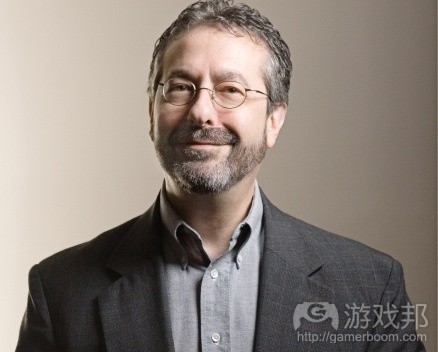Warren Spector称当代游戏应提升故事叙述水平
作者:Christian Nutt
在Warren Spector设计的游戏中,玩家总是能做出有意义的选择,他正是因此闻名游戏行业。在加州Santa Cruz举办的以《Inventing the Future of Gaming》为题的讨论会中,他提出一个重要的问题,甚至可以说正是这个问题定义了他的作品:在不妥协玩法的情况下,我们可以改进游戏的故事吗?
但他首先提出警告:“我们制作的游戏、你们玩的游戏,现在显然是不坏的,甚至可以说是充满乐趣。我不是说任何游戏都应该消失,都不要玩,不要开发,不要喜欢。我的意思是,我们现在所做的游戏的改进空间还很大,做得好的话,可以让我们前进一大步。”
他还指出这个真相:虽然独立领域产生了大量“了不起的”作品,但“他们没有改变游戏主流,我也不确定他们会。”
所以他呼吁制作主流游戏的开发者“升级”他们的故事叙述水平,并提出一些具体的建议。
“所有其他媒体都是由单一的、不重复的时刻组成的。游戏是不一样的。”
他表示,第一条需牢记的是,不要像其媒体,“你的故事是通过空间探索展开的。”
游戏能做的四件大事是:
1、游戏具有将玩家传送到其他世界的力量。“在《半条命》中,我们都变成Gordon Freeman。”在《塞尔达传说》中,“我拯救了Hyrule许多次。”
2、游戏使玩家沉浸在这些世界里。“当效果达到是佳时,玩家便不会意识到自己正在经历的是自己在游戏创造的世界中所经历的。”
3、“游戏是唯一要求玩家参与的媒体,也是唯一对玩家参与做出反应的媒体。”
4、游戏的核心特点是重复。“所有其他媒体都是由单一的、不重复的时刻组成的。游戏是不一样的。在游戏提供的系统中,玩家可以重复探索。游戏具有重复性。”
他又强调,与其他媒体不同,游戏必须给予玩家独一无二的体验。他会要求他的设计师:“如果在这款游戏的结尾,所有玩家的体验都是相同的,那么返回去再想想。”
更重要的是,他提出:“这并不意味着玩家讲述自己包罗万象的故事。玩家尤其擅长描述‘我先这么做,然后那么做,结果就是这个。’但他们并不真正擅长叙述故事:即阐述为什么这个和那个很重要。”
当构建一个给予玩家想象空间的故事时,一个重要建议是:“在创作者和受众之间的对话里,你必须知道哪一部分该你讲,哪一部份该对方讲。”
“我们必须构建世界,而不是布景。”
他还抨击用电影布景构建游戏世界的做法——连房间里的门都打不开,纯粹摆设。“我们必须构建世界,而不是布景。”
如果游戏是“以探索为基础的,那么你怎么做电影布置?布置太容易制作了。它们限制了玩家互动作用。它们的可预测性远超开放世界的要求——开放世界是很困难的、不可预测的。”然而,“不可预测性更有利于玩家导向型故事。”
他还支持“虚拟地下城主人”的开发——沿着《求生之路》的AI向导的路线,但甚至更先进。“好故事是创作而成的,不是发现的。我们必须创作故事,但之后我们还需要系统,以响应玩家输入、动态地调整事物和适应那些我们希望玩家做出的意外选择。”
发挥游戏潜能的另一个秘诀是:“所有其他媒体都只回答问题”,比如,“这就是向导对歪曲的理解”。虽然是为了解释,但他们必须回答问题,否则就会令人不满意。”
Spector建议:“游戏提出问题,玩家回答问题。我认为这就是电子游戏故事的未来。”(本文为游戏邦/gamerboom.com编译,拒绝任何不保留版权的转载,如需转载请联系:游戏邦)
Warren Spector: Use the storytelling tools that work for games
By Christian Nutt
Warren Spector is well known for focusing on creating games where players can make meaningful choices. At a talk at the UC Santa Cruz’s Inventing the Future of Gaming symposium, he set out to ask an important question, even perhaps the ventral question that defines his work: Can we level up game stories without compromising gameplay?
But first, a caveat: “The games we’re making you play now obviously aren’t bad, they’re tons of fun. I’m not saying any kind of game should go away, not be played, not be made, not be liked. All I’m saying is there’s more we can do and that refining what we already do, while nice, will get us a whole lot further.”
He also made this stark observation: While there is plenty of “terrific” work being done in the indie space, and with games made specifically as art, “they’re not changing the mainstream of gaming and I’m not sure they will.”
So he urged game creators who make mainstream games to “level up” their storytelling, and he had some concrete suggestions on how to approach that.
“All other media are made up of that single moment, the non-repeated moment. We are different.”
The first important thing to keep in mind, he said, is that unlike in other media, “your story is exposed through the exploration of space.”
He noted four key things games can do:
We have the power to transport players to other worlds. “In Half-Life, we all become Gordon Freeman.” And as far as Zelda goes, he said, “I’ve personally saved Hyrule many, many times.”
We immerse players in those worlds. “We are at our best when we remove obstacles to the belief that you are experiencing what you are experiencing in the world that we create.”
“We are the only medium that demands user participation and the only medium that can respond to that input.”
Games feature repetition at their core. “All other media are made up of that single moment, the non-repeated moment. We are different. We offer players game systems that they can exploit over and over again. Repetition is kind of what we do.”
And unlike other media, games must give each player a unique experience, he argued. Period. He would tell his designers: “If, at the end of this game, every player has the same experiences, go back and think.”
Importantly, he said, “this does not mean [players are] telling their own story soup-to-nuts. Players are exceptionally good at ‘I did this, and then this, and that happened,’ but they’re not real good at narrative arc: Here’s why this and this are important.”
His key piece of advice when constructing a story that allows room for the player is this: “In the dialogue between creators and audiences, you need to know what parts you are going to own and what part you need players to own.”
“We need to build worlds, not sets.”
He also railed against games that build movie sets — with doors that don’t work and empty rooms, facades. “We need to build worlds, not sets.”
If games are “grounded in exploration, how can you build a movie set?” he asked. “Sets are really easy to build. They limit player interaction. They’re much more predictable than an open-ended world would be — worlds are hard, worlds are tough. They’re unpredictable.” However, he said, “unpredictability is better for player-driven stories.”
He also argued for the development of the “virtual dungeon master” — along the line of Left 4 Dead’s AI Director, but even more advanced. “Good stories are constructed, not found,” he said. “We need someone to create a story, but then we need systems, or some way for the game to respond to player input, to dynamically modify things and accommodate those unexpected choices we want players to make.”
And there is one more secret to unlocking the potential to game stories: “Every other every medium answers questions,” he argued — “here is what the director thinks about torture,” for example. “There is room for interpretation, but they have to answer questions or they’re unsatisfying.”
On the other hand, Spector suggested, “games ask questions, and players can answer them. I think that’s key to the future of video game stories.” (source:gamasutra)








































 闽公网安备35020302001549号
闽公网安备35020302001549号